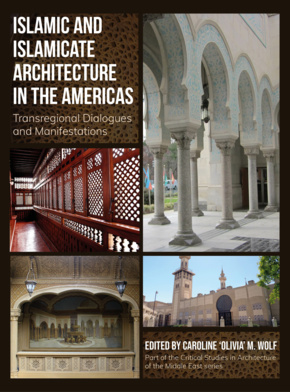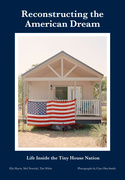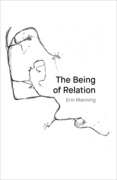Islamic and Islamicate Architecture in the Americas (Book)
Transregional Dialogues and Manifestations
From colonial courtyards in Peru to the mosques and cultural centres of contemporary communities across North America, depicts how architectural traditions of the Islamic world have taken root. Confronts conventional geographical boundaries, situating the Americas in dialogue with transregional aesthetic and cultural networks. 37 col. 17b&w illus.
Edition
Architectural expressions resonant with Islamic traditions appear in diverse modes across the Americas, from Andalusian-inspired colonial patios in Peru to the modern and contemporary patronage of immigrant communities in the United States and Canada. This volume examines the multiple manifestations of Islamic architecture that permeate the region’s built environment to invite an expanded framing of this architectural legacy via a hemispheric consideration of aesthetics, narrative, and patronage.
Chapters consider a broad range of topics from the migration of aesthetic traditions and construction techniques tied to the architectural forms of the Islamic world in the colonial “New World,” to the direct contributions of modern and contemporary migrants in shaping a collective identity and the built environment.
By placing in productive dialogue sites that represent Islamic and Islamicate architecture across North and South America – two areas outside of the traditional conceptions of the Islamic world– this volume bridges transregional and transcultural gaps in the current literature.
Caroline ‘Olivia’ M. Wolf is an assistant professor of Art History at Loyola University Chicago, USA. Her research emphasizes diasporic and transregional visual intersections across the Global South, with areas of specialization in Latin American modernism, as well as Middle Eastern art and architecture. Wolf’s work has been supported by fellowships from the Fulbright-Hays DDRA, the National Endowment of the Humanities (NEH), the American Council of Learned Societies (ACLS), and the Society of Architectural Historians (SAH).
Contents
Acknowledgements
Introduction: Transregional Manifestations of Islamic and Islamicate Architecture in the Americas
Caroline ‘Olivia’ M. Wolf
PART I: Rethinking the Mudéjar in the Americas: Colonial Contexts
Chapter 1. Design, Disruption, and Disease: Reconstructing the Historical Context of the ‘Mosque-type’ Chapels in Sixteenth-Century Mexico
Luis Carlos Barragán
Chapter 2. ‘A Church of Mosque Proportions’: Debates of Mudéjar Style in New Granada
Juan Ricardo Rey
Chapter 3. Echoes of Mashrabiya in Latin America: Reconsidering the Balconies of Lima
Fernando Luis Martínez Nespral
PART II: Revisiting Orientalism in the Americas: Nineteenth and Twentieth century Forms and Patronage
Chapter 4. The Turkish Style Cozy Corner: Everyday Appropriations of Islamicate Objects and Spaces in the American Parlor, 1885-1910
Sarah Wheat Ordu
Chapter 5. Midwest Middle East: Forms of Synthesis in Chicago’s Bahá’í Temple
Vajdon Sohaili
Chapter 6. Constructing Orientalism in Interwar Florida
Emily Neumeier
PART III: Revealing Diasporic Patronage in the Americas: Modern and Contemporary Representational and Religious Space
Chapter 7. Crafting Cosmopolitanism in the Brazilian Mahjar: Eclecticism, Orientalism and the Syrian-Lebanese Architectural Patronage of the Jafet family in Centennial São Paulo
Caroline ‘Olivia’ M. Wolf
Chapter 8. Independent and/or Instrumentalized: Surveying Mosque Architecture in Chile (1986-2006)’
Courtney Lesoon
Chapter 9. Canadian Mosques: Hybridity of Form and Program
Tammy Gaber
Chapter 10. Diasporic Aesthetics and the Genealogy of an Urban Mosque: An Analysis of the Islamic Center of Washington D.C.
Akel Kahera
Contributor Biographies
Index














